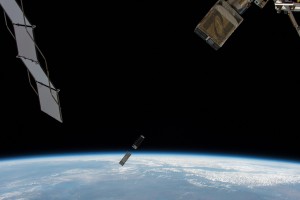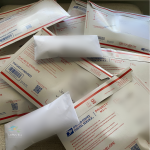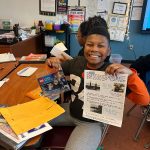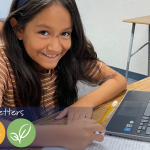I just completed my final letter for the 2020-2021 academic year. This wraps up year 6 for me as a scientist working with LPS. In that time I’ve finished my PhD, moved to a new job at NASA, then a new job back at my PhD institution, and am now looking at perhaps my final career move to Johns Hopkins University Applied Physics Lab. Similarly in undergrad, I transferred almost every year, ultimately ending up having attended 3 different universities, with 3 different majors, and having done research at a fourth university which I continued into a gap year before grad school at a 5th university.
All of that moving around presents a challenge when writing the letter about my career path. Over time, I’ve been learning to toss out the need to be comprehensive and instead focus on the connective tissue. I’ve always been interested in NASA (who isn’t!?) and I discovered over time that I really enjoy designing, building, and flying NASA satellites and rockets. My letters now don’t laboriously recount every university I’ve been affiliated with and what my reasons were for moving. Instead, I just talk about how at each point in my education and career, I’ve been continually discovering the things that I’m most interested in as well as the things I’ve got a natural talent for. Those two things are not always the same. Many of my penpals are surprised to learn that a NASA scientist wasn’t good at math in elementary, middle, or high school. But I kept on going with it because I knew that was the challenge I had to overcome in order to pursue the thing I was most interested in. Ultimately what got me through was finding a study group of people who were doing really well in my classes and making friends. It took me forever to figure that out: I was in my junior year of college. Finding points of connection and pieces of advice like this that can apply regardless of what stage someone is at in their education can really help with closing the apparent giant gap in a students mind between where they are and where we are.
It also took me some time to discover that students really like hearing about our mistakes. It’s not something most people talk about openly. From the student’s perspective, scientists are authorities. But again: focus on the connective tissue. We’re human. Humans make mistakes, and that’s normal. Sure, we have built up expertise due to how long we’ve been at it. But we have to identify, fix, and learn from our mistakes just like our student penpals do. We may be professional scientists, but we’re still learners too.
Finding the connections with my penpal is something I’ve become more cognizant of and better at since starting with LPS. Turns out, that’s a principle that applies for all audiences. Finding the common language and common experience is crucial for effective communication with any and every audience.
Written by long-time pen pal James Paul Mason, published April 8, 2021




